Guest Post – Shiny Writing Tips From Mal Reynolds and Firefly
 I love space opera and sci-fi, which means I love Joss Whedon’s short-lived space western series Firefly, and I especially love Malcolm Reynolds. The Mal Reynolds character is what you get if you made a TV series about the adventures of a renegade Han Solo before his character’s redemption (and subsequent gentrification) at the end of the original Star Wars movie. In the subsequent Special Edition of the film, George Lucas famously retconned the iconic scene introducing Han Solo so he didn’t fire first, thus making him safer but less interesting. Joss fixed that with Mal, who was forever firing first (and last, and…).
I love space opera and sci-fi, which means I love Joss Whedon’s short-lived space western series Firefly, and I especially love Malcolm Reynolds. The Mal Reynolds character is what you get if you made a TV series about the adventures of a renegade Han Solo before his character’s redemption (and subsequent gentrification) at the end of the original Star Wars movie. In the subsequent Special Edition of the film, George Lucas famously retconned the iconic scene introducing Han Solo so he didn’t fire first, thus making him safer but less interesting. Joss fixed that with Mal, who was forever firing first (and last, and…).
As a smuggler / tramp freighter captain, Mal thought of himself as a kind of Confederate Robin Hood against the Union-like Alliance. Of the captain, savant River Tam sagely observed “Mal. Means ‘bad.’ In the Latin.” Mal didn’t even know he needs redemption, or if he did, he ran from that awareness. He might be an uncomfortable character for many Christian authors, and yet he is precisely the kind of character that readers identify with, and thus valuable to try to write. During the course of Firefly, Mal remained largely unrepentant, and thus fascinating. If you can, lead up to your character’s redemption through the course of the work and make that a climax element late in the story. Pull that out too soon and you remove much of the moral tension.
And another thing — mistreat your characters. Often, many Christian writers are afraid to be dark, or they rescue their characters too quickly. It’s an old but venerable expression: kill your darlings. The more conflicted and mistreated our protagonists are, the more compelling they are. Conflict drives the engine of Story, and clever dialogue is always better than exposition. Therefore, here are some tips (and accompanying examples from various Firefly episodes) on how we can improve our writing by shaking it up a little, space western-style:
- • Get Religion – Don’t be afraid to embrace or be critical of religion. Either tactic creates lots of opportunity for conflict and discussion. Faith is more interesting when it is demonstrated than when it is preached. I love stories that display the cause-and-effect of one righteous man in the midst of a gang of ruffians.
- Mal: Well, what about you, Shepherd (a kind of cleric)? How come you’re flying about with us brigands? I mean, shouldn’t you be off bringing religiosity to the fuzzy-wuzzies or some such?
-
Book: Oh, I got heathens aplenty right here.
-
Mal: If I’m your mission, Shepherd, best give it up. You’re welcome on my boat. God ain’t.
• Cuss ingeniously – Don’t be afraid of allowing your characters to swear (as long as it’s in a language the majority of your readers don’t understand). Carole McDonnell, author of the Christian speculative multicultural novel, Wind Follower, has noted that whether it is culturally correct or not, it is not uncommon for people of all religions and temperaments to reach a point where they need to vent. How you handle this can resonate with and entertain your readers.
- Mal: Confronted by a bar full of Alliance sympathizers. “Oh, zhe zhen shi ge kuaile de jinzhan [this is a happy development]…”
- Mal: Da-shiong bao-jah-shr duh la doo-tze … [the explosive diarrhea of an elephant]
• Hit something – In many Christian novels, violence is considered bad, but in Speculative Fiction, violence has a purpose and a place. Don’t be afraid of a little violence, as long as it serves the character(s), is comic, or happens off-screen. (Or, best yet, all three.) You can do a great deal by suggesting violence without graphically depicting it. While watching The Dark Knight, itself a very dark film, I noted just how little actual violence was shown on-screen. A great deal was suggested but not actually shown. Use that in your fiction, and then show the cause-and-effect of resorting to violence and the consequences of doing so.
- In the ship’s infirmary after fighting in a bar on the anniversary of the end of war that the Independents lost.
- Simon: Need a weave on that?
-
Mal: It’s nothing.
-
Simon: I expect there’s someone’s face feels differently.
-
Mal: You know they tell ya, never hit a man with a closed fist. But it is, on occasion, hilarious.
• Explore the difference between laws and morals – Feel free to allow your characters to break “the law of the land” but always keep an eye on your character’s personal moral code. This is not to say that the character’s personal code is like that of the Christian author, but broken moral codes (if the character breaks his own code) is a great opportunity for self-reflection. And when a character breaks the code of the land, there is the conflict of the good man against the evil in the world, which is a venerable Christian theme.
- Sheriff Bourne: You were truthful back in town. A man can get a job, he might not look too close at what that job is. But a man learns all the details of a situation like ours, well, then he has a choice.
-
Mal: I don’t believe he does.
- Seeking to return prepayment money for the train job to the henchmen of a vicious mob boss.
- Mal: Now this is all the money Niska gave us in advance. You take it back to him, tell him the job didn’t work out. We’re not thieves. (Beat) Well we are thieves. Point is, we’re not taking what’s his. Now, we’ll stay out of his way best we can from here on in. You explain that’s best for everyone, okay?
- Crow, Niska’s 1st henchman: Keep the money! Use it to by a funeral! It doesn’t matter where you go or how far you fly! I will hunt you down and the last thing you see will be my blade!
-
Mal: Darn. [kicks Crow into the intake engine]
- Turns to 2nd henchman.
- Mal: Now this is all the money Niska gave us in advance…
-
Niska’s 2nd henchman: Oh yeah, I’m good! Best thing for everyone! I’m right there with you!
Here are some other thoughts from Mal and Firefly.
- • There’s a difference between banter and bickering. The former is hilarious, the latter is tedious. Firefly did banter very well. Sky Captain And The World Of Tomorrow resorted to bickering between the main characters. There’s a reason why Firefly is so quotable and Sky Captain, sadly, isn’t.
• Don’t be afraid to be dark, and be willing to relieve that darkness with sporadic comic moments.
• Always leave room for mystery or long-running unresolved plot points. (I’m thinking here of the example of Inara’s hinted immortality “I don’t want to die at all!”)
• Work from an outline if you can (Joss is a self-described ‘outline nazi,’) but don’t be afraid to fly by the seat of your pants to break out of a rut or a slump.
• Don’t skimp on fleshing out a wide variety of colorful, believable villains.
• Don’t be afraid to listen to the inane ramblings of your cast or crew. And don’t be afraid to ignore them.
Feel free to add your own Firefly-for-writers tips in the comments, and thanks for reading!
~ ~ ~ ~ ~
 Johne Cook is a technical writer by day and creative writer / editor at night. His interests include prog rock, film noir, space opera, and racquetball. Johne is older than he looks but acts younger than he is.
Johne Cook is a technical writer by day and creative writer / editor at night. His interests include prog rock, film noir, space opera, and racquetball. Johne is older than he looks but acts younger than he is.
His short fiction has appeared at Deep Magic, The Sword Review, Wayfarer’s Journal, and Digital Dragon magazine.
In 2006, with L. S. King and Paul Christian Glenn, Johne founded Ray Gun Revival magazine, devoted to space opera and golden age sci-fi. They refer to themselves collectively as the Overlords, and are often vaporizing someone’s puny planet for various arbitrary infractions.


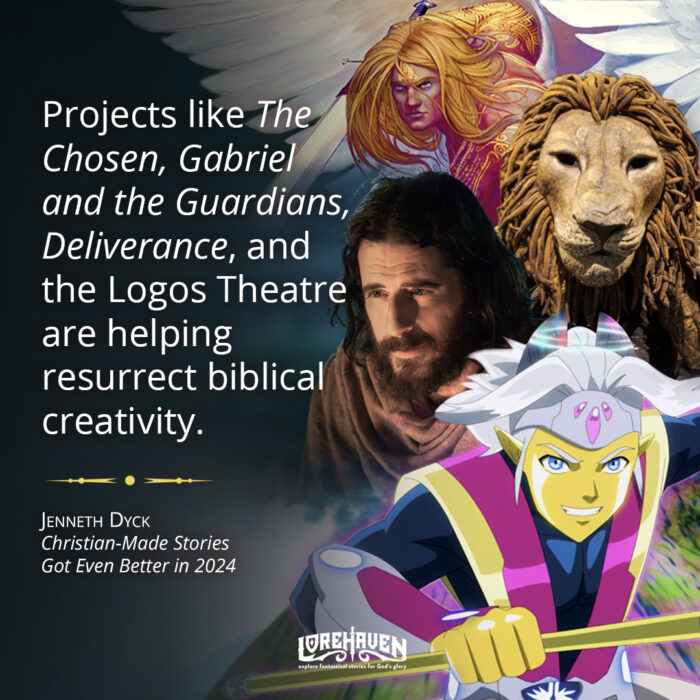





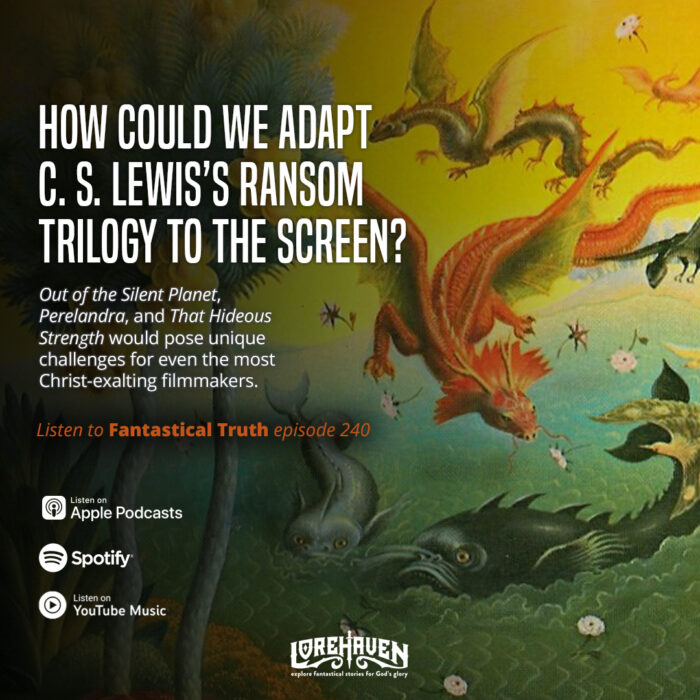











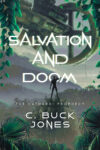
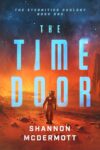
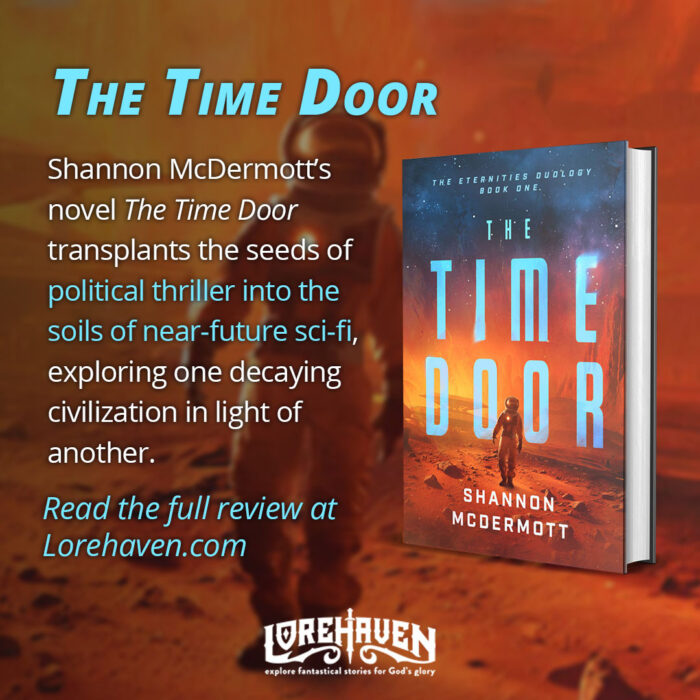


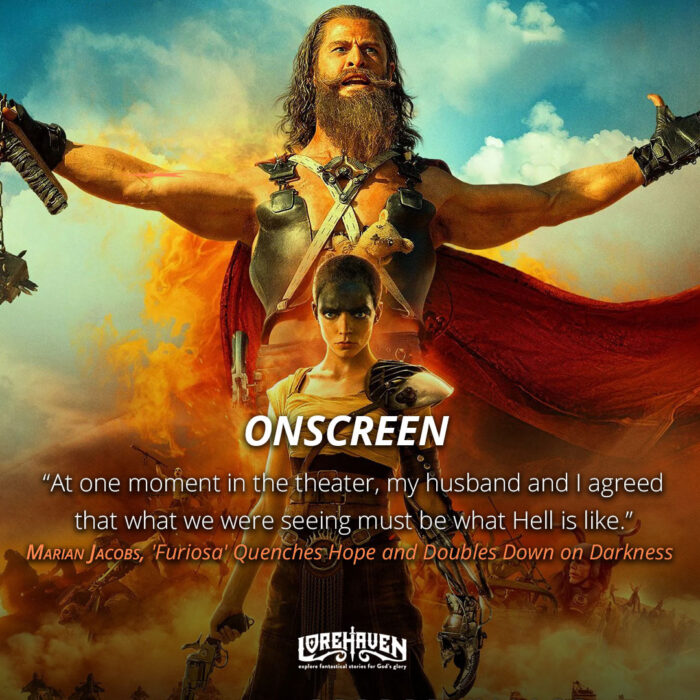













Great post.
Want to see that scene? Ignore the subtitles, and view this.
I love that scene. It suggests that even when you try to do ‘the right thing,’ there are challenges and consequences. (Joss explores the consequences in a later episode called War Stories.) I furthermore love that Mal breathes a minced oath, ‘darn,’ and then kicks the thug into the engine. He’s pragmatic to a fault (especially where his survival is concerned). That’s the kind of move another Harrison Ford character would have approved of, when Indy faces the swordsman showing off his moves, and then draws and shoots him once, turns, and moves on with his chase.
A secondary motivation for Mal’s pragmatism is this: the script’s writers not only are aware of cliches, but dislike them, and don’t mind mocking them openly.
Other examples:
Brilliant! Not only does that subvert expectations, it deconstructs the very cliches common to the genre while, in the process, mining them for comedy gold.
INVERTED CLICHES! <3 I am now convinced this show is something. will look into it on the weekend Please please don’t tell me I found more procrastination material. . .
Kathrine, you found the /motherlode/ of procrastination material (for at least 14 episodes, and one feature film). I consumed the series three hours at a time until I’d watched it all.
And then I did it again.
And again.
Ah, but my absolute favorite exchange of this nature occurs in the excellent “Objects in Space:”
Sometimes I think the biggest problem with a lot of genre fiction today is it takes itself way too seriously. Any show that has enough confidence and fun to goodnaturedly snark at itself is a move in the right direction.
I am such a huge Firefly fan. the characters are rich and complex, and the dialogue is hands-down some of the best ever. I encourage any writers wanting to learn how to weave poignancy and purpose in with great humor to study the screenplays. I was so influenced by Malcolm Reynolds when writing my novel Someone to Blame, bits of him transformed into my character Yurok sheriff Joe Huff. Okay, I did steal a couple of lines from Mal and tweaked them a bit (“some people are all kinds of stupid…”) so I invite any Firefly fans to have fun reading my book and seeing the similarities.
There are some wonderful faith-related bits that come through the series (as Johne mentioned). One moment I especially love is when River is ripping out pages of Shepherd’s Bible and he is horrified and unsure how to coax her to stop. She tells him she is fixing the book (since there is so much in there that is not believable) and he tells her you don’t fix the Bible. Some will say the series is too crass and vulgar and un-Christian , but it is so full of examples of honor, faith, loyalty, integrity, trust, and all the good things we want to cheer for. Thanks, Johns, for posting this! Shiny!
Here’s some more content that I didn’t have room for in this post. Think of this as ‘bonus content.’
Mal was a True Believer in his cause as a Sergeant in the Independent army fighting against the Alliance (a government 500 years in the future formed of a union between the U.S. and China). He was also a religious man, as evidenced by his language (“…our angels are gonna be soaring overhead raining fire…” and “Because we are so very pretty. We are just too pretty for God to let us die.”). He also kissed a medal on a chain around his neck to reinforce the impression. But when anticipated air support didn’t arrive and Mal was ordered by his superiors to lay down his arms, he stared at the sky in disbelief, and you saw his hope die at the same time as his faith. He became a hard man, loyal only to his crew and his sense of self-preservation.
I got to wondering what the thorn in Mal’s side was (ala the Apostle Paul). I wondered if his thorn was his feeling of betrayal when the Independants left him and his squad to have to surrender on their own at the Battle of Serenity Valley. I also wondered if his thorn was when he lost his faith. However, my fellow RGR Overlord has what I consider to be a brilliant observation that supercedes both those theories.
Paul Christian Glenn noted: “Here’s the thing: I don’t think Mal cares that much about being on the losing side. He’s always doing things that put him on the “losing side,” and he does it with eyes wide open. No, I think his anguish over the war has to do with abandonment. In one fell swoop, Mal was abandoned by his allies and his God. Everybody left him and “his crew” out there to die in Serenity Valley. Think about how he talks about God and faith. “That’s a long wait for a train that don’t come.” Or the bitterness in his voice when Zoe notes that during the war they would have never left a man behind. “Maybe that’s why we lost.” Again — the theme there is abandonment. I think it’s why he couldn’t bring himself to abandon River and Simon, even when he wanted to.” In another scene, Mal said, “I’m not leaving Serenity.” Inara said “Mal, you don’t have to die alone.” And that lead to Mal saying “Everybody dies alone.”
That brings out an interesting facet of Mal’s relationship with Inara. In essence, he left her before she could leave him, perpetuating his thorn instead of dealing with it. It is a theme played out again and again in the series, and once more in the feature film. As Paul wrote, “If you don’t let yourself need someone, they can’t abandon you.” Mal was awfully cruel to Inara, especially early on. Paul wrote “And as so often happens in real life, she ended up leaving him BECAUSE of it. It’s a self-fulfilling prophecy.” For my part, I think Mal’s problem with Inara wasn’t that she “fogged things up,” I think she made his beliefs clearer, and he didn’t like what he saw.
I love this! Great tribute to Firefly, great tips for writers, great all the way around. And killer insight on the difference between Firefly‘s dialogue and Sky Captain‘s. “Bickering” is exactly the right word. Unfortunately, the subtle difference between bantering and bickering can be a hard one to balance (don’t ask how I know this).
I think bantering is ‘cool arguing’ while bickering is ‘petty arguing.’ They’re both arguing – it’s just one vibe is more entertaining to watch than the other.
This was great. Cap’n Mal is one of my fave characters of all time and I still get furious at them cancelling such a quality SF show. The bantering is one of the best. Whedon knoweth re bantering.
I tihnk because Mal is smart and principled while still an outlaw and ably violent man, because he has a conscience and courage, you can root for him and WANT him to overcome the odds . He is imperfect without being disgraceful. He is capable and smart without being ideal. He has shades of grey, but he is a man who wears a white hat tilted and slightly dusty all the same.
Can they please let me peek at the alternate universe where this show wasn’t cancelled and ran for 8 years so I can buy the DVD set?
Mir, I have three words for you. They’re the same words I uttered after walking, crestfallen, out of the movie theater after seeing The Voyage of the Dawn Treader:
New Earth remake.
Even better, a New Earth version of the show would have cut out all the pointless sex scenes — which, I note with regret, didn’t help with the show staying on the air.
For those wondering, it looks like Hulu does have the entire show and the movie up. 0=)
Stephen, sorry, if you want a lengthy blog series on Firefly, you’re going to have to sweet talk Johne into it. 0=)
The series is also available on Netflix.
Lots of people have done in-depth Firefly ‘rewatch’ columns. I’m not that patient nor detailed (nor smart). Instead, I cherry-pick my favorite tie-in topics and explore those. Heck, RGR was founded out of fervor for Firefly and the desire to keep that vibe alive. Unfortunately, while we’ve had some very good stuff, none of it quite been as good as what Joss and company gave us, and that rankles. But that doesn’t mean we stop trying. We’re working on developing a whole new generation of Browncoat enthusiasts who give us their own creations. Maybe we’ll unearth the next Joss and give the new Firefly to the world without the premature Fox cancellation.
One can only hope…
Love this! The subtext of Firefly is genius, and it’s great to see the religious subtext brought into the open. Thanks!
You had me at “Firefly”.
But seriously, love this post.
I especially like the part on banter v. bicker.
Great stuff, Johne. Over at Mike Duran’s blog, there’s a debate raging about the divide between writing for Christian and non-Christian audiences, and the principles you’ve outlined here would go a long way toward making that whole argument moot.
Thanks, Fred. Yeah, I saw that post come on my RSS feeds this morning. Fascinating post.
I clearly lean toward the ‘engage the world’ side of the things, but that’s sympathetic with my ‘we have two primary marching orders’ theme. It’s hard to disciple people if you don’t go out into the world.
It is somewhat ironic that atheist writers like Joss Whedan and J. Michel Stracsynski often bring the best Christian characters and themes to televised science fiction.
Someone needs to help me out here.
You see, as great a character as Shepherd Book was — and all of them were, really — I think it’s a stretch to call him a great Christian character.
Have I missed something? If so, let me know.
He’s a great religious character, maybe, with wonderful personality and backstory and a sense of morality. But not truly Christian. Instead it’s Christian In Name Only.
The above-quoted exchange between Malcolm and Shepherd confirms this, when Mal asks skeptically whether Shepherd should be off somewhere preaching religiosity to the fuzzie-wuzzies or some-such. “I’ve got heathens aplenty right here,” Shepherd says gravely, sarcastically. But heathen isn’t defined. Neither is the solution to being a heathen even barely offered except for, perhaps, stop being so heathenish.
Ergo: Christian In Name Only. You, the viewer, fill in the description. A Christian viewer fills in with “the Gospel.” Heathens fill in anything else.
It’s like a political candidate who says he supports Family Values or Social Justice (defined as: [insert your personal definition here]). (See also: Hope and Change™.)
Shepherd falls into that Placeholder Christian Character role, which good visual drama can do, and it’s certainly better than Evil Murderous Cultural-Fundie characters. But perhaps let’s not call them the best Christian characters in a show or story series.
I’ve never confused Book for a great /Christian/ character. Rather, he’s an example of a Godly (if flawed) man as written by an atheist. But that’s not to say he doesn’t have value, especially for writers who /are/ Christian. Take Book and build on him.
Great take of Firefly and good tips as well. I am getting ready to watch the series and movie agains this summer (Netflix Instant Access). When I watch Castle with my wife I stay interested by picturing Nathan Fillion with one of those Peacekeepers as a sidearm.
On a side note: FOX must have taken lessons from the way CBA houses handle suspense and spec-fic. As in not very well. It still leaves me amazed FOX has stayed in there with Fringe as long as they have. Between Firefly and Space: Above and Beyond they all but banished Sci-fi to the bush leagues for a while.
Speaking of Castle and Mal:
How bad are the sex scenes? Can they be skipped without missing plot? I could use something else to fill the looooooooooooong mid-season break in Doctor Who.
Galadriel, there are only three episodes that I recall actually showing Inara’s job rather than speaking about it (possible spoilers ahead).
In the first episode, her character introduction happens in bed (in a touch of supreme irony, as most of Firefly is). There’s a lot of soft camera showing skin, heavy breathing, then we’re in the pillowtalk afterwards. The next time occurs during the episode “War Stories,” Inara has a female client and we’re shown a few moments of them together. This scene is actually more about talking/socializing then actual sex, and the camera cuts away before things get too far.
To my mind, the worst Firefly episode (and the only one I haven’t been able to stomach rewatching) is “Heart of Gold.” Again, spoilers ahead: Mal & gang come to the aid of a small planet brothel mother, a friend of Inara’s, who wants protection from the locals. Its a classic western antiheroes help the bar girls kind of story. Over midway through the episode (and for various reasons I won’t get into at the moment), there is a rather exposed sex scene between Mal and the head of this establishment. Firefly being broadcast television, this is not the same as an HBO show; nevertheless, it did make me uncomfortable. My main beef with this episode, though, isn’t so much this moment (though I don’t think I’d ever watch it through again). Instead, the whole episode to me felt the most “preachy” of any episode, as though I was being coerced to agree with what the characters did. This same problem cropped up in a few scattered points in other episodes (though never to the same blatant extent), and is also a major problem in the movie Serenity (my personal opinion). I could enjoy the show when it was completley open and unapologetic for the fact that these people were thieves and crooks. I had problems when the show wanted me to think that was a Good Thing, such as in the otherwise excellent “Ariel” when the characters started the hiest with a throwaway conversation about why robbing the hospital was OK (and even noble). “Bad” guys as protagonists I can take, crime/hesit stories I can enjoy, but please, let’s not pretend nobody’s getting hurt by my (choice of wrong deed here).
Alright, that’s enough of that. Overall, I think Firefly is a show you can definitely enjoy even with the violent/sexual themes in it, because the show is not consumed by these traits (except, as I said in my opinion, the specific episode I named). Even better for me as a performer, I love the fact that it is one of the few shows that can really say it is an emsemble piece, where each character was given a distinct personality, ambitions, dreams, goals, and stories. Alas, the deconstruction of this excellent ensemble work into standard tough guy/girl protagonists with sidekicks is also a complaint I have with the movie, but that’s a discussion for another day.
(I’ll figure out this new commenting system eventualy).
To those who are interested, these two reveiws of “Heart of Gold” summarize what I find so distasteful and really just plain weird about the episode:
“QUICKSAND”
“SUBNUBILUS“
Thanks for the tips, Michelle. That’s why internet videos can jump, after all.
Great reviews, Michelle, especially the latter one, with this part:
I’ve always disliked this episode of them all. And not only is this not likeable, it’s bad storytelling, unrealistic behavior. Perhaps worst, it proves that a guy wrote this, and doesn’t simply assume that women will have the same views on sex as guys, but also plays out sick fantasies.
There’s more talk about Inara, whose career is as a Companion, sort of hooker with a heart of gold (no really), than many actual sex scenes. Everything moves so fast that they don’t pander and linger. With Joss, everything in Firefly is about the characterization and keeping the action going.
So, yeah, there’s a little, but just a little. There’s more violence, but even that is in service to the story.
Tell you what, I was hooked in the first five minutes. If you aren’t, as well… give it ten.
I know this post is old now, but everyone needs to immediately see this artist’s rendition of the Muppets/Fraggles as the <em>Firefly</em> cast: http://io9.com/5808204/muppets-and-fraggles-climb-aboard-serenity/gallery/1
If that’s not the best justification of artistic parody, I don’t know what is.
I finished watching Firefly (still want to try Serenity) and I thought it had very good story-telling and well-drawn characters.